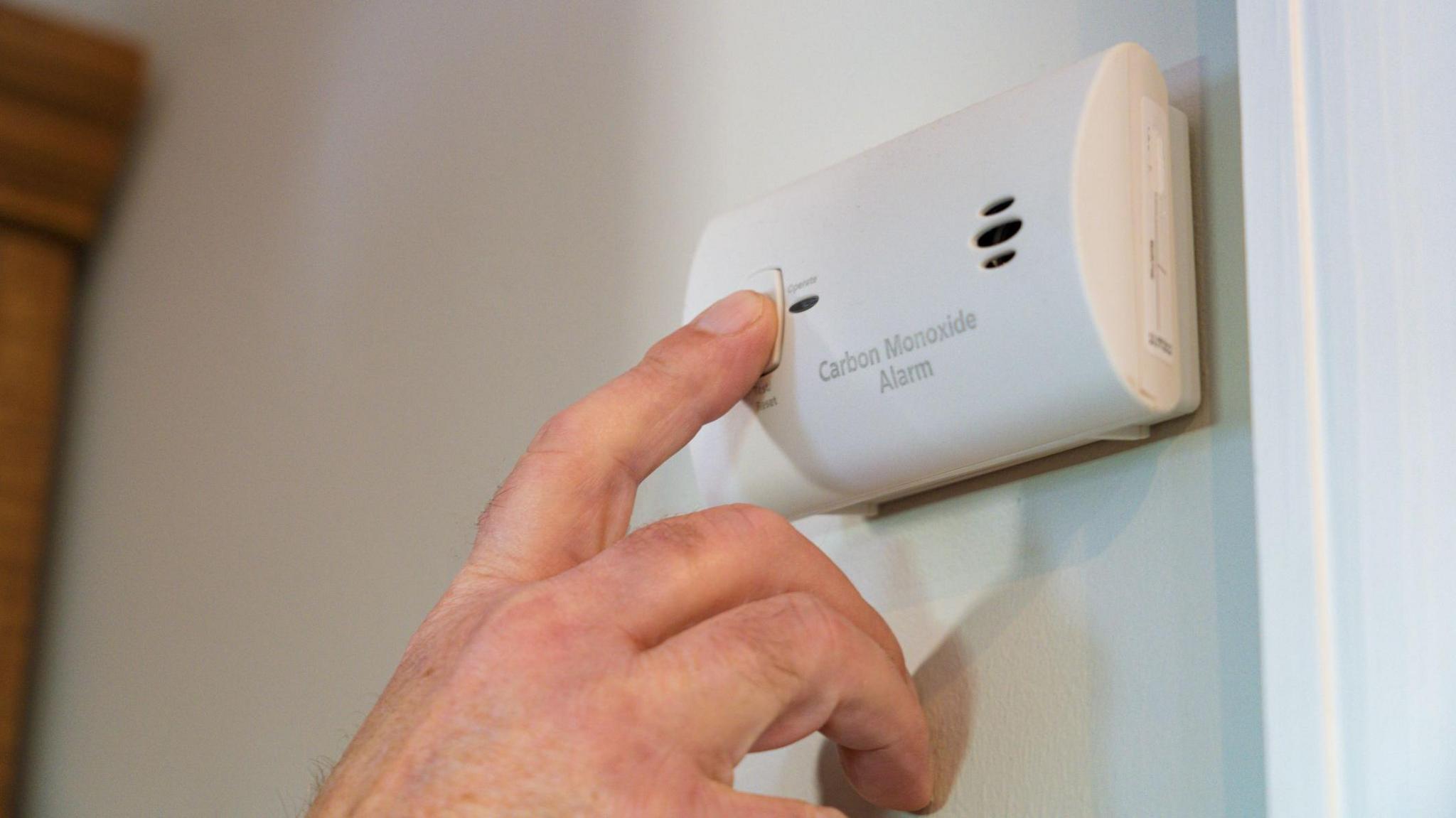Crews respond to surge in carbon monoxide calls

The LFB urges people to have carbon monoxide detectors in rooms where fossil fuels are burned
- Published
The number of call-outs to the London Fire Brigade (LFB) for carbon monoxide incidents has more than doubled in the past five years, according to new figures.
The gas, labelled a "silent killer", cannot be detected through taste, sight or smell.
There were 1,714 emergency calls for firefighters between August 2024 and July 2025, LFB data showed.
Assistant Commissioner Pamela Oparaocha urged people to be "mindful of safety" when heating their homes in the colder months, especially when burning fuel unsuited for domestic use.
She said: "Some alternative heating methods, while well-intentioned, can carry serious risks.
"For instance, burning treated wood might seem like a cost-saving option, but it can release toxic fumes and is more likely to spit embers, which could ignite nearby materials."
Carbon monoxide fumes are highly poisonous fumes that are produced by the incomplete burning of fossil fuels.
In total, 7,764 incidents have been recorded over the past six years.
Woman urges carbon monoxide alarms after poisoning
- Published7 February
My partner 'was killed by a barbecue'
- Published23 August 2015
Sisters campaign for carbon monoxide alarm in cars
- Published10 May
The brigade said the rising cost of living may have contributed to the increase in cases, with some households turning to unsafe heating methods or delaying appliance servicing.
Ms Oparaocha said: "As we enter some of the coldest months of the year, it's natural to want to heat homes in a cost-effective way, but keeping warm must be done in a safe way.
Last week, firefighters found raised levels of carbon monoxide at a food court on Kensington High Street in west London.
The building was evacuated and ventilated before being declared safe.
The LFB advises installing carbon monoxide alarms in all rooms with fuel-burning appliances and ensuring they can be heard while people are asleep.
More advice on safe heating and financial support with energy bills is available from local authorities and Citizens Advice.
Listen to the best of BBC Radio London on Sounds and follow BBC London on Facebook, external, X, external and Instagram, external. Send your story ideas to hello.bbclondon@bbc.co.uk, external